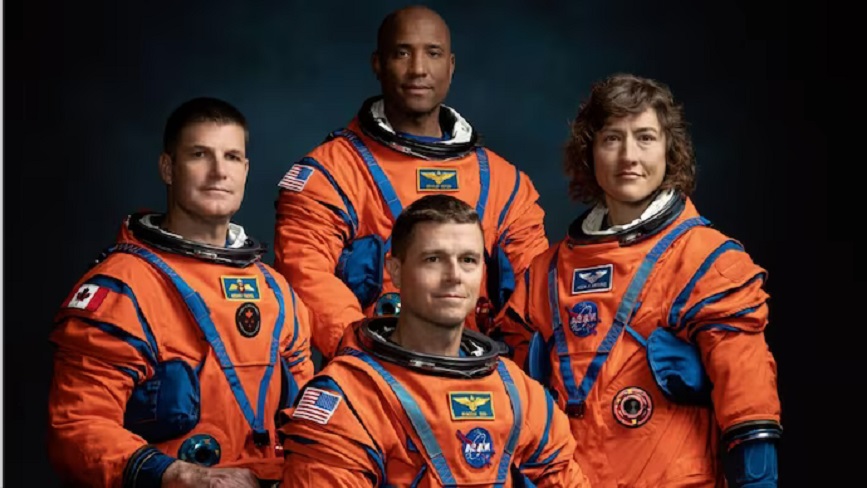NASA has announced the names of the four astronauts who will travel to the moon on the Artemis II mission, set for launch as early as next year. The mission marks the first time that humans will have traveled to the moon since 1972, as part of NASA’s Artemis program, which aims to establish a sustainable human presence on the moon by 2024.
The four astronauts selected for the mission are Warren Hoburg, Brien Duffy, Nicole Mann, and Anne McClain. They will be responsible for piloting the Orion spacecraft, which will carry them around the moon and back to Earth.
The Artemis II mission will serve as a crucial test of NASA’s ability to conduct deep space missions, which will be essential for establishing a long-term presence on the moon and eventually sending humans to Mars.
In a live stream event hosted by ABC News, NASA officials discussed the challenges and opportunities of the Artemis II mission. They stressed the importance of having a diverse and experienced crew who can work together effectively under challenging conditions.
“The Artemis II mission is an important step forward in our efforts to explore deep space and establish a sustained human presence on the moon,” said NASA administrator Bill Nelson. “We are thrilled to have such a talented and experienced crew on board for this historic journey.”
Hoburg, Duffy, Mann, and McClain were chosen from a pool of more than 18,000 applicants, reflecting the high level of interest and talent in the space industry.
For many space enthusiasts, the announcement of the Artemis II crew marked a major milestone in the journey towards establishing a human colony on the moon. While there is still much work to be done before that goal can be achieved, the selection of a new crew for the mission is a sign that progress is being made.
In addition to the Artemis II mission, NASA is also planning a number of other deep space missions in the coming years, including missions to Mars and beyond. These missions will require innovative technologies, extensive planning and training, and a long-term commitment to exploration and discovery.
As part of the Artemis program, NASA is working to develop new spacecraft, habitats, and other equipment that will be essential for establishing a long-term presence on the moon. They are also partnering with other countries and private companies to achieve their goals, reflecting the international cooperation that is needed to tackle the challenges of space exploration.
Despite the challenges and complexities of deep space missions, there is a growing sense of excitement and possibility for what the future of space exploration might hold. From establishing a human outpost on the moon to sending astronauts to Mars and beyond, the next few decades promise to be some of the most exciting in human history.
As the Artemis II mission approaches, there will undoubtedly be new developments and challenges that arise. However, with the selection of a talented and experienced crew, NASA is demonstrating its commitment to pushing the boundaries of what is possible in space exploration.
For those who have long been fascinated by the idea of traveling to the moon, the Artemis II mission represents the realization of a dream that has been nearly 50 years in the making. While there is still much work to be done, the selection of the crew for this historic mission is a sign that we are one step closer to making that dream a reality.
As we look to the future of space exploration, it is clear that it will require the best and the brightest minds from around the world to work together to achieve our goals. The Artemis program represents a new era in human exploration, one that promises to bring us closer to understanding ourselves, our planet, and our place in the universe.
